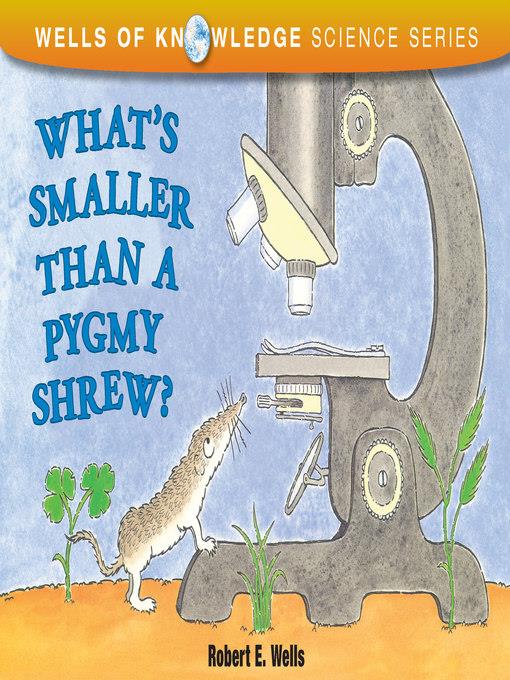
What's Smaller Than a Pygmy Shrew?
Wells of Knowledge Science
فرمت کتاب
ebook
تاریخ انتشار
2014
Reading Level
3
ATOS
4.8
Interest Level
K-3(LG)
نویسنده
Robert E Wellsشابک
9781497699533
کتاب های مرتبط
- اطلاعات
- نقد و بررسی
- دیدگاه کاربران
نقد و بررسی

May 1, 1995
Gr 3-4-In this presentation that goes from small to infinitesimal, Wells compares the size of a tiny animal (a pygmy shrew) to an insect (a ladybug), which is in turn contrasted with one-celled animals, bacteria, molecules, atoms, and sub-atomic particles. Bright, colorful cartoons and a text that looks like hand lettering in a variety of fonts are jauntily arranged across the pages. Readers are encouraged to try to imagine being the sizes of the creatures under discussion. This lighthearted treatment is fine for the familiar, but begins to become confusing for a paramecium, an amoeba, and bacteria. Viruses are skipped as the narrative continues to include molecules, atoms, quarks, and electrons of the physical sciences instead of a parallel journey through diminishing sizes in the animal world to perhaps ovum, sperm, and DNA. The book has the look of an introduction for young readers. As the narrative continues, however, many terms are introduced, without pronunciation guides even in the two-page glossary, and the cartoon approach becomes cluttered and less effective.-Frances E. Millhouser, Reston Regional Library, VA

August 1, 1995
Ages 6^-9. In "Is a Blue Whale the Biggest Thing There Is?" (1993), Wells used words and pictures to give young children an inkling of how big things can be. In his latest book, he reverses the concept to introduce smallness. A pygmy shrew looks small beside an elephant, but not when it's next to a ladybug. In turn, the ladybug looks enormous compared to a paramecium. Showing that even a single cell is not the smallest thing, Wells introduces molecules, atoms, electrons, and quarks. The acrylic-and-ink artwork includes touches of humor. Despite the inherent problems in illustrating what cannot be observed, Wells introduces a challenging concept in a way that will entertain and intrigue young children. ((Reviewed August 1995))(Reprinted with permission of Booklist, copyright 1995, American Library Association.)

























دیدگاه کاربران